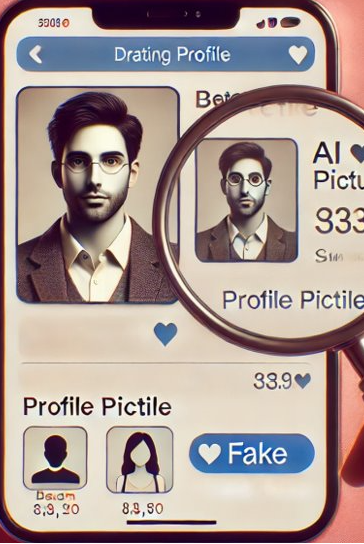Valentine’s Day may be around the corner, but not all love stories have happy endings, especially when artificial intelligence (AI) gets involved. Scammers have evolved, using AI-generated romance scams to prey on emotions, steal money, and manipulate victims. From fake AI girlfriends to deepfake-powered romance scams, digital deception is at an all-time high.
The Rise of AI-Powered Romance Scams
Traditionally, romance scams involved con artists posing as potential love interests to build emotional connections before requesting financial assistance. But today, AI has taken fraud to the next level.
-
Deepfake Identities: Scammers now use AI to create hyper-realistic fake photos and videos to impersonate real people.
-
AI Chatbots for Romance: Some platforms allow fraudsters to automate interactions with victims, keeping them emotionally engaged 24/7.
-
Voice Cloning Scams: AI-generated voices can mimic real individuals, making phone conversations feel authentic.
One shocking example is the Brad Pitt romance scam, where a woman was tricked out of nearly $900,000 by a scammer who used AI-generated images and fake messages to convince her she was in a relationship with the Hollywood star (People). Stories like these highlight the growing sophistication of digital deception.

AI Girlfriends & Subscription Scams
Beyond traditional scams, AI is now being marketed as a “service” for companionship. Subscription-based AI girlfriend/boyfriend apps claim to provide emotional support and romantic interactions—but at what cost?
-
Many AI girlfriend/boyfriend platforms lure users in with free chats, then push costly subscriptions to unlock “exclusive” conversations.
-
Scammers create fake AI profiles of real women and men, convincing users to pay for personalized interactions.
-
These services harvest personal data, which can be misused for further fraud or social engineering attacks.

How to Stay Safe from AI-Driven Romance Scams
-
Reverse Image Search: Always check if someone’s profile photo appears elsewhere online.
-
Be Skeptical of Fast-Forming Online Relationships: If someone is overly affectionate too soon, it could be a red flag.
-
Watch for Subscription Paywalls: If chatting with someone requires a payment, it’s likely a scam.
-
Verify Identities with Video Calls: Scammers often avoid live video chats.
-
Don’t Share Personal or Financial Information: Protect yourself by limiting what you disclose online.

The Future of AI & Online Romance
AI is reshaping digital relationships—for better and worse. While some AI-driven platforms genuinely aim to provide companionship, scammers are exploiting this technology for fraud. Awareness and vigilance are key to ensuring that love remains real in the digital world.
Legislation to Combat AI-Driven Fraud
Governments and regulatory bodies are stepping up to address AI-driven fraud, implementing new laws and policies to protect consumers:
-
No AI FRAUD Act (H.R. 6943): This bill aims to safeguard individuals' digital likenesses and prevent unauthorized AI impersonation.
-
AI Fraud Deterrence Act (H.R. 10125): This bipartisan legislation seeks to increase penalties for AI-assisted financial crimes, including romance scams.
-
California’s AI Impersonation Bill: This proposed law bans AI-generated personas from misrepresenting themselves as licensed professionals, a step toward preventing AI-driven fraud.
-
EU AI Act: The European Union has introduced comprehensive regulations to govern AI use, including addressing fraud risks and misuse of deepfake technology.
While these regulations are a step in the right direction, continued vigilance, awareness, and advocacy are needed to stay ahead of evolving AI-driven scams.





